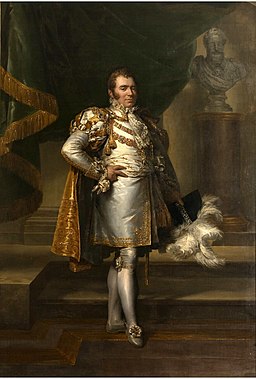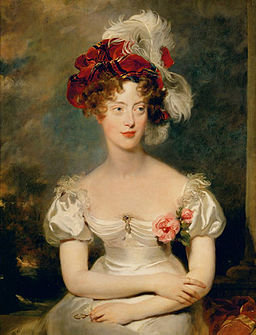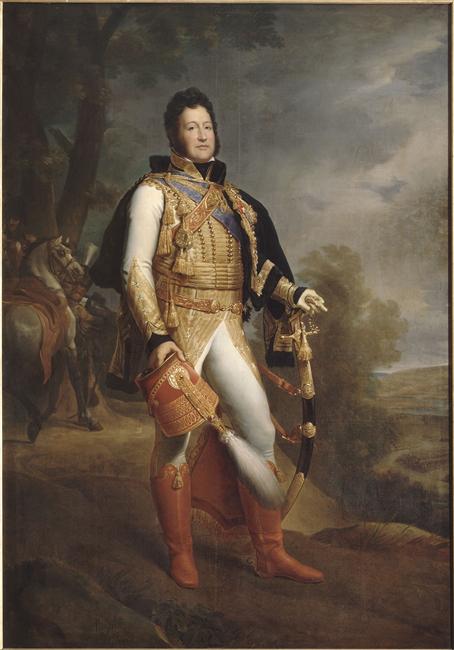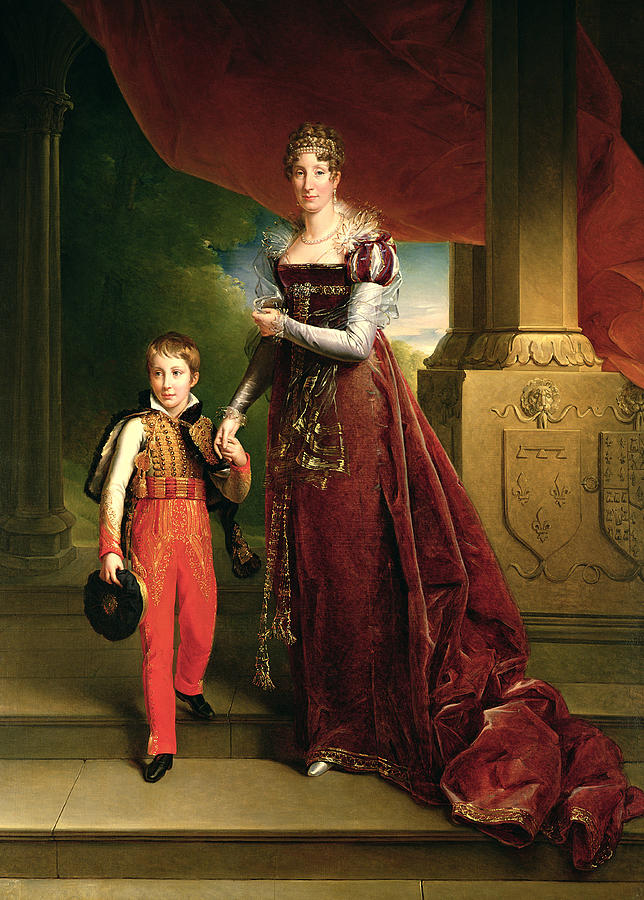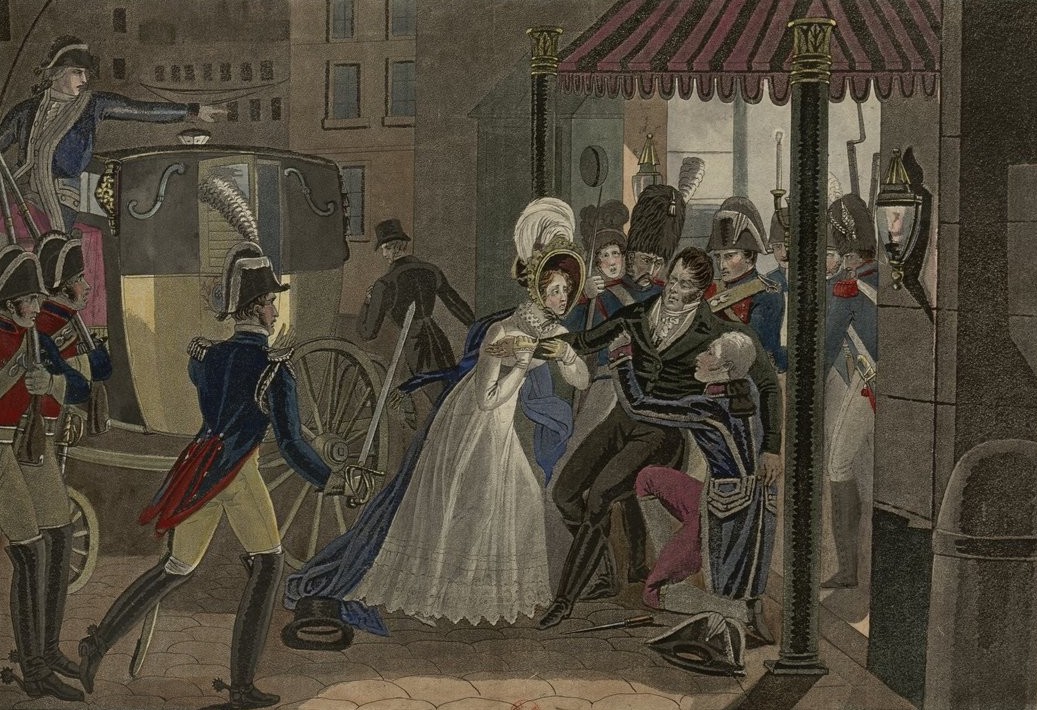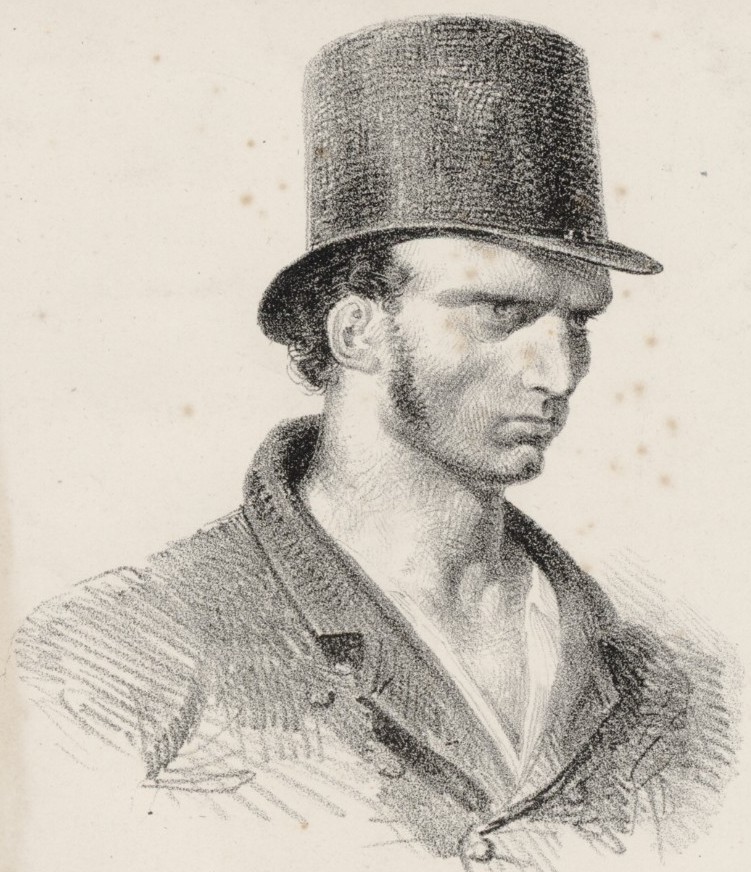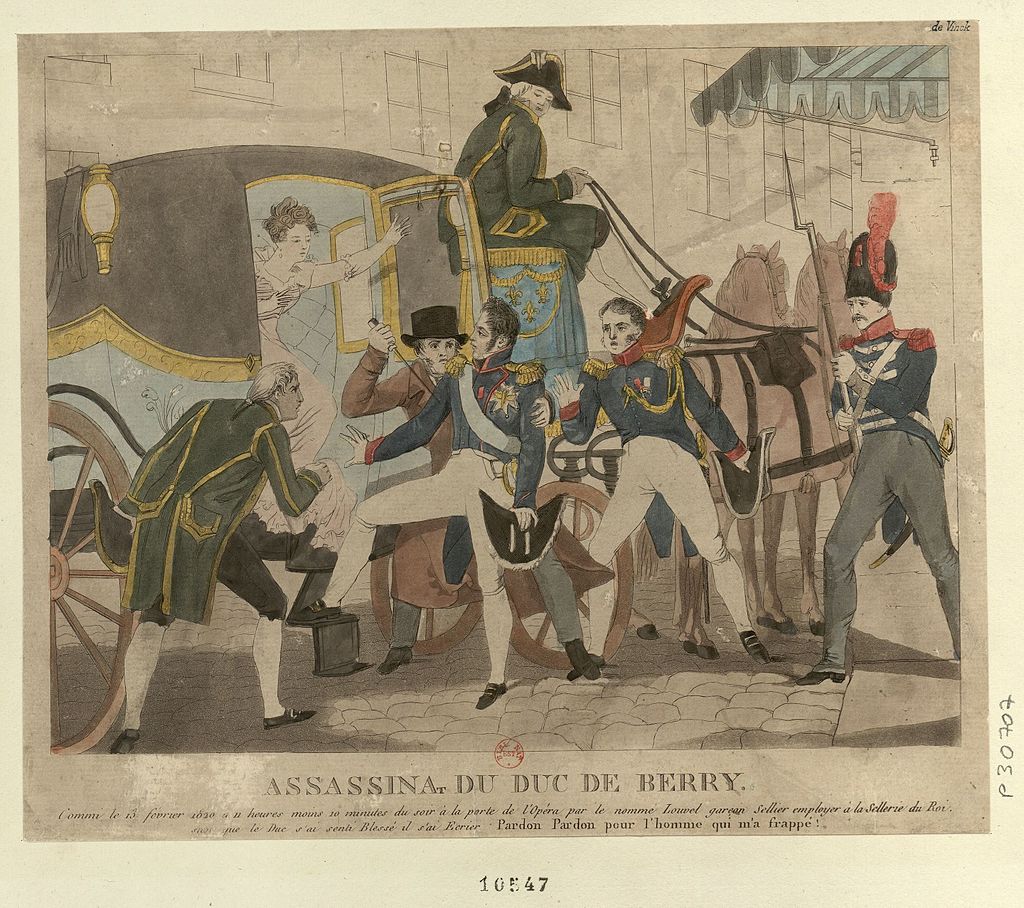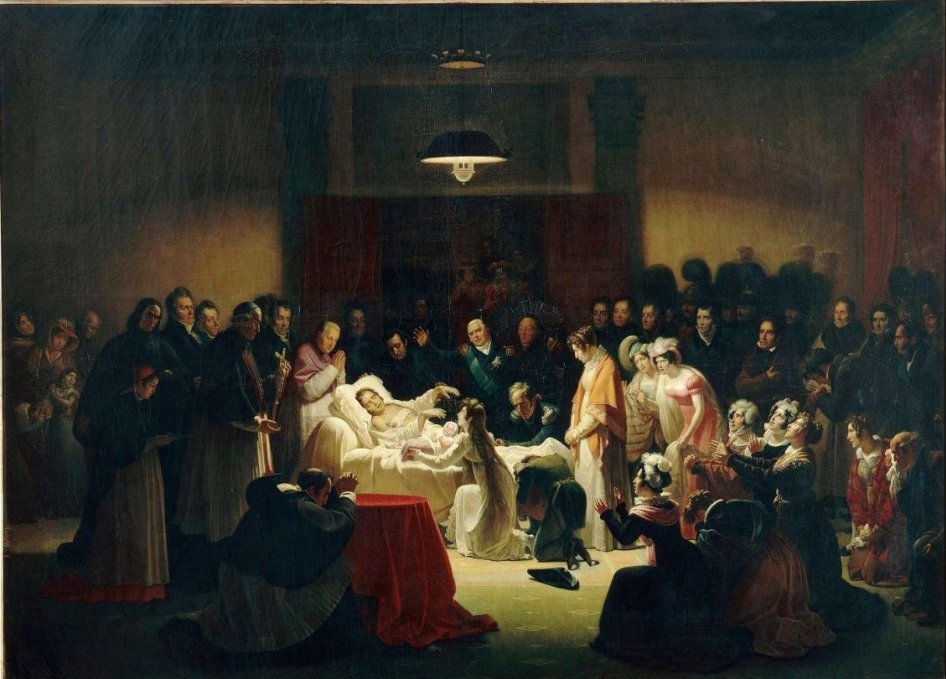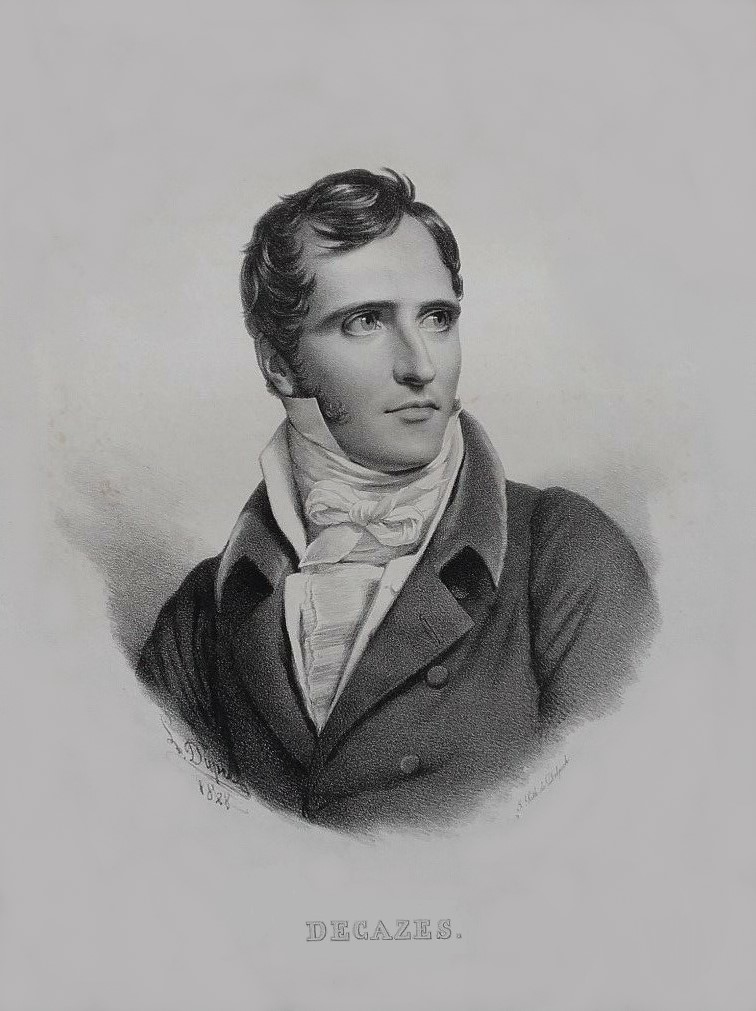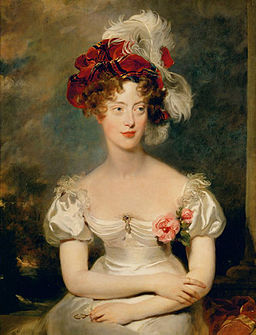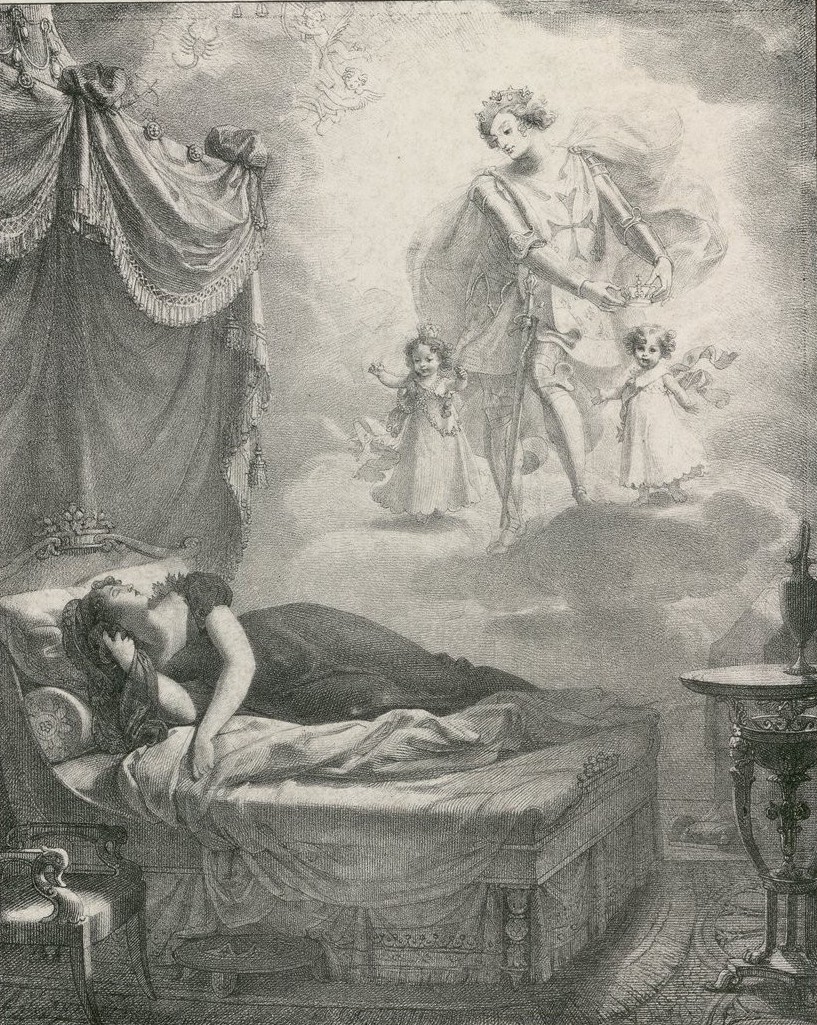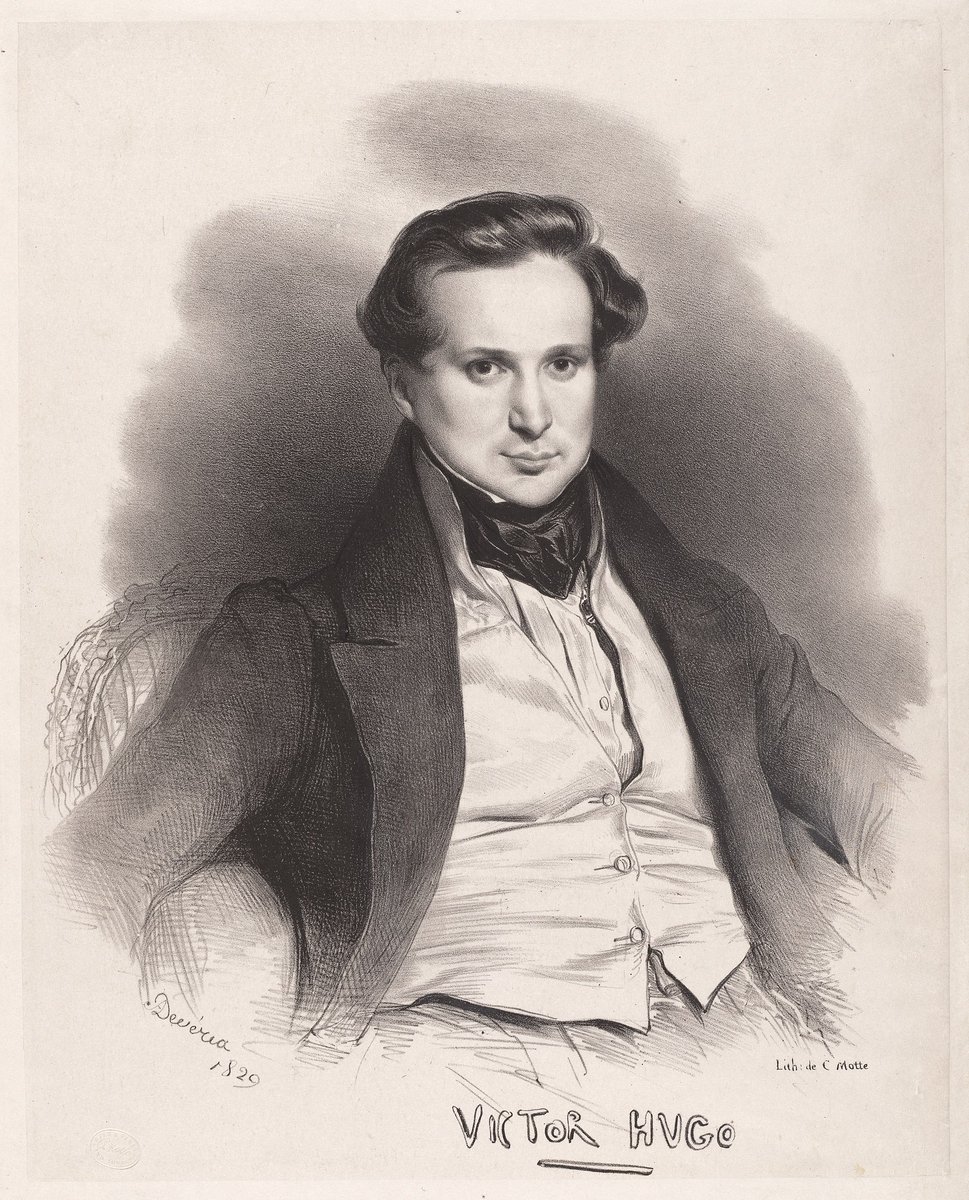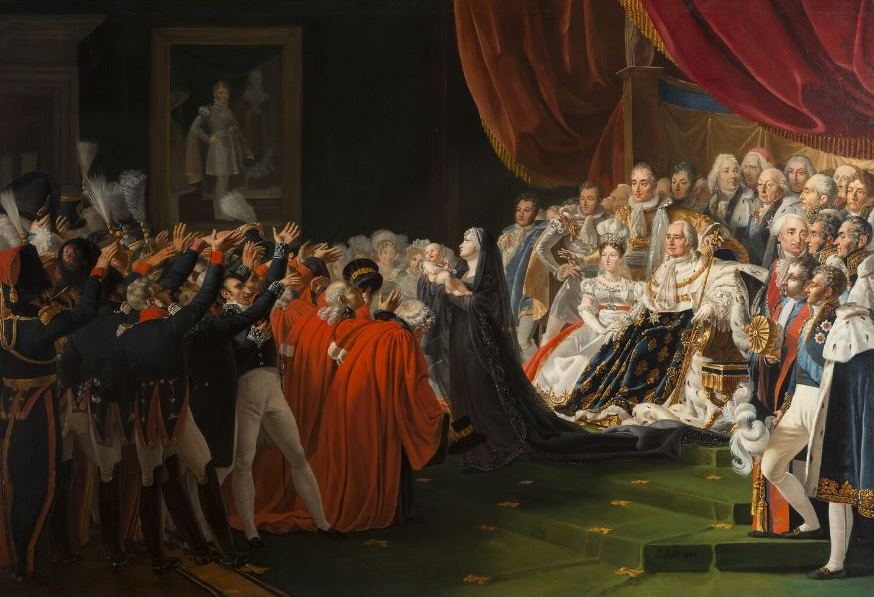1/ Today is Mardi Gras. On this day in 1820, all the most glamorous people in Paris were out at the final opera before theaters shut down for Lent, including the Duc de Berry, the king’s nephew who, along with his wife, were the only French royals who weren’t sticks in the mud.
2/ Though the Duc de Berry was a famous cad, who had brought his wife to the opera but was hoping to rendezvous there with his mistress, a famous dancer, he was also the future of the Bourbon dynasty. Both the king & Berry's brother were childless; Berry had a string of bastards.
3/ If Berry didn’t have any kids, then the French throne would eventually pass from the royal family to their despised cousins, the Duc d’Orléans, a liberal reformer. The Duc d'Orléans was ALSO at the opera that night, and the Berrys visited the Orléans (below) in their box.
4/ While there, at an intermission, the Duchesse de Berry said she was tired & wanted to go home. The Duc, escorted her back to her carriage, then turned to go back inside for the rest of the show (and a meeting with his mistress).
Then a man leapt out of the fog with a knife.
Then a man leapt out of the fog with a knife.
5/ The man with the knife was Louis-Pierre Louvel, and he probably didn’t look like this pic — all the contemporary depictions of him are wildly different from each other.
Louvel was an illiterate stablehand, devoted to the exiled Napoleon, and planned to extinguish the Bourbons
Louvel was an illiterate stablehand, devoted to the exiled Napoleon, and planned to extinguish the Bourbons
6/ Louvel’s dagger hit the mark, stabbing Berry in the chest. Berry (accurately) cried out “I’m dying!” as Louvel ran into the night (to be captured with the help of a waiter, who tackled the running man). He was brought inside the opera for treatment.
7/ What followed was quite a dramatic scene, as people crowded into the room where Berry was dying. ANOTHER of his mistresses showed up with his two illegitimate daughters, & he gave them his blessing — which later spurred, of all things, the Duchesse de Berry to adopt the girls
8/ The French prime minister showed up, a man named Élie Decazes, who was a favorite of the king, but despised by much of the royal family as an upstart liberal (and also by real liberals like Lafayette, who didn’t trust him). Decazes interrogated Louvel right there at the opera.
9/ The attack on Berry would have huge political implications; France’s “ultraroyalists” argued that Decazes’ liberal policies, such as ending newspaper censorship, were responsible for provoking the attack. (Some even went further and alleged that Decazes was part of the plot.)
10/ King Louis XVIII adored Decazes — his letters to him are really something else — but in the aftermath of Berry’s killing was finally prevailed upon to fire him. (Among other tactics, Louis’s family not-so-subtly threatened that Decazes would be killed himself.)
11/ Don’t weep too much for Decazes, though. Louis gave him a golden parachute: he was made a duke, and appointed ambassador to London with an annual salary of 300,000 francs. He later became an industrialist, after whom the town of Devazeville is named: https://en.wikipedia.org/wiki/Decazeville
12/ As a result of Berry’s death, and Decazes’ dismissal, the Bourbon regime turned hard to the right, reimposing censorship, and changing the electoral laws so that the richest 25% of voters (who were already limited to the richest ~1% of men) got to cast double votes.
13/ This rigging of the electoral laws (a particularly egregious example of governments of all stripes got up to in 19th Century France) led to a landslide in elections later that year. Liberals suffered a modest loss in normal seats, but lost the “double vote” seats 92-8.
14/ There was another huge political consequence of Berry’s death that had more to do with dynasties than electoral politics. Remember that he was the last Bourbon thought capable of bearing. But as Berry lay dying, his wife made a startling announcement: she was pregnant.
15/ Even before the baby was born, it was dubbed the “Miracle Child,” with royalists across France praying for the child’s health & that it would be a boy, with equal fervor.
This art shows the Duchesse de Berry dreaming of St. Louis with her daughter and unborn (presumed) son.
This art shows the Duchesse de Berry dreaming of St. Louis with her daughter and unborn (presumed) son.
16/ A young Victor Hugo — then a royalist — wrote a poem on the occasion:
"Now stares the world at thee, poor infant thing
Whose father sees thee not — My King!
These thoughts of piety profound
As homage to thee here I bring."
It goes on and on like this.
"Now stares the world at thee, poor infant thing
Whose father sees thee not — My King!
These thoughts of piety profound
As homage to thee here I bring."
It goes on and on like this.
17/ The “Miracle Child” did live and did turn out to be a boy, the long-awaited Bourbon heir, who went by the title “Comte de Chambord.” For a while, he brought new life and hope to the Bourbon dynasty in France. (Eventually revolutions would send things in a different direction)
18/ My favorite little vignette from this whole story is that Berry, on his deathbed, *begged* King Louis XVIII to spare the life of his assassin. Louis, a cold fellow who had no intention of sparing Louvel, put him off, in one version saying “Only if it is the will of God.”
19/ Berry’s death was unquestionably the greatest moment of a largely dissolute life — begging to spare his killer, acknowledging his bastards, finding religion, etc.
20/20 If you liked this thread, you should check out my French history podcast, @TheSiecle. The events of this thread were covered in Episodes 14 and 15 (but I recommend starting with Episode 1): http://thesiecle.com/subscribe/

 Read on Twitter
Read on Twitter